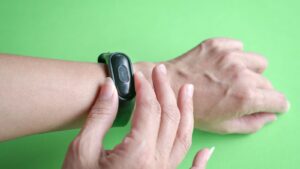
There is a lot of misinformation surrounding anxiety and depression, which can make it challenging to get short-term disability approved. Let’s separate myths from facts and understand how we can get short-term disability approved for anxiety and depression.
MYTH: Anxiety and depression are not legitimate disabilities.
FACT: Anxiety and depression are recognized as disabilities by the Americans with Disabilities Act and can qualify for short-term disability benefits with the right documentation.
MYTH: People with anxiety and depression are just lazy and need to try harder.
FACT: Anxiety and depression are medical conditions that can significantly impact a person’s ability to function in their everyday life, often requiring treatment and therapy to manage.
MYTH: Getting short-term disability for anxiety and depression is nearly impossible.
FACT: If you have the proper documentation from mental health professionals and a clear understanding of your employer’s short-term disability policy, getting approved for short-term disability benefits for anxiety and depression is possible.
Pro Tip: Don’t let myths and stereotypes stop you from seeking the support and benefits you need. Do your research, consult with mental health professionals and HR representatives, and know your rights.
Myths About Anxiety and Depression
Anxiety and depression are common mental health issues that can have a big impact on a person’s life. Unfortunately, there are many myths and misconceptions about these conditions that can lead to misunderstanding and stigma. This article will explore some of the common myths about anxiety and depression in order to shed some light on the truth behind these conditions.
Myth 1: Anxiety and Depression are Just Forms of Weakness
Anxiety and depression are not by any means, forms of weakness; they are mental health conditions that require proper treatment and care. Believing otherwise, feeds into one of the many myths about anxiety and depression that still persists today. While some people may experience temporary anxiety or low mood, individuals with anxiety and depression experience symptoms that interfere with their daily activities and warrant professional intervention. Unfortunately, believing that anxiety and depression are just forms of weakness can prevent individuals from seeking help, and may lead to prolonged suffering.
Seeking short term disability for anxiety and depression can be an effective option for some individuals to manage their symptoms and focus on their recovery. By speaking to a medical professional, patients with anxiety and depression can discuss their options for short term disability and access the help they need. Let’s do away with the myth that anxiety and depression are forms of weakness and start prioritizing mental health as important as physical health.
Myth 2: You Can Just Snap Out of Anxiety and Depression
Myth: You can just snap out of anxiety and depression – this is not true. Anxiety and depression are mental health conditions that require treatment and support from professionals.
It’s important to understand that anxiety and depression are not a choice, and they can’t simply be “snapped” out of. These conditions can be caused by a variety of factors, including genetics, life experiences, and chemical imbalances in the brain. Seeking treatment is crucial to managing symptoms and improving quality of life. Treatment options may include therapy, medication, and lifestyle changes.
Pro tip: If you are struggling with anxiety and depression and need time off from work, consider applying for short-term disability benefits. Be sure to provide thorough documentation from your healthcare providers to improve the chances of your application being approved.
Myth 3: Medication Is the Only Way to Treat Anxiety and Depression
Myth 3: Medication is the only way to treat anxiety and depression- It is a common misconception that medication is the only effective way to treat anxiety and depression. However, numerous non-medical treatment options are available that can offer relief to those experiencing symptoms of anxiety or depression.
These include psychotherapy, such as cognitive-behavioral therapy, group therapy, and exposure therapy, designed to help individuals modify negative thought patterns or behaviors associated with anxiety and depression. Other non-medical treatment options include meditation, exercise, and relaxation techniques such as deep breathing, which can help alleviate stress and promote mental wellbeing.
While medication can be a useful tool in managing anxiety and depression symptoms, it is important to remember that it is not the only solution, and a combination of treatments may offer the most effective relief. Pro tip: It is essential to consult with a healthcare provider to determine the best course of treatment for your specific needs.
Facts About Anxiety and Depression
Anxiety and depression can be two of the most difficult and debilitating mental health issues. Many people don’t understand the full extent of these conditions, which can lead to a lot of misconceptions. In this article, we will discuss some of the myths and facts about anxiety and depression, and how to get short-term disability approved for these mental health issues.
Fact 1: Anxiety and Depression are Medical Conditions
Fact 1: Anxiety and depression are medical conditions that can qualify for short-term disability benefits.
Despite common misconceptions, anxiety and depression are real medical conditions that can significantly impact a person’s daily life. Symptoms of anxiety and depression can range from mild to severe, and treatment may require medication, therapy or a combination of both.
If these conditions significantly impact a person’s ability to perform their job, they may qualify for short-term disability benefits. However, the process of getting approved for these benefits can be challenging, and it often requires documentation from medical professionals and detailed information about the person’s diagnosis, treatment plan, and limitations. It is essential to understand that seeking help for anxiety and depression is a sign of strength, and it is okay to ask for support during these difficult times.

Fact 2: Anxiety and Depression Can Be Caused By Genetic and Environmental Factors
Anxiety and depression are caused by a combination of genetic and environmental factors. While genetics tend to play a significant role in predisposition to anxiety and depression, environmental factors such as trauma, abuse, and substance abuse can trigger its onset. Overcoming anxiety and depression can be a challenging journey, and it is important to remember that your mental health is just as crucial as your physical health. Feeling overwhelmed and alone is normal, but it is crucial to reach out for help.
Short-term disability for anxiety and depression can be obtained by providing medical evidence of the level of impairment caused by the illness. This evidence must demonstrate the limits the conditions place on the individual’s ability to work. It is best to consult an experienced disability attorney for guidance in obtaining such benefits.
Pro Tip: Remember to prioritize your mental health, reach out for help, and don’t hesitate to seek legal advice when needed.
Fact 3: Multiple Treatment Options Are Available For Anxiety and Depression
Fact 3: Multiple treatment options, such as therapy, medication, and lifestyle changes, are available for anxiety and depression, and they are effective in managing these conditions.
- Therapy: Talking to a mental health professional can help you address the underlying causes of your anxiety and depression and develop coping strategies.
- Medication: Antidepressants and anti-anxiety medications can help alleviate symptoms of anxiety and depression, but they should only be taken under a doctor’s supervision.
- Lifestyle changes: Exercise, healthy eating, mindfulness, and stress-management techniques can all help manage anxiety and depression symptoms and improve overall mental health.
It is important to remember that everyone’s journey with anxiety and depression is different, and what works for one person may not work for another. It is essential to work with a healthcare provider to find the right treatment plan for you. Pro tip: If you are struggling with anxiety and depression and need to take time off work, consider applying for short-term disability benefits. Consult with your HR department or a legal professional to learn more about the process.
Understanding Short-Term Disability for Anxiety and Depression
Being diagnosed with anxiety or depression can be a difficult experience. Adding to that is the process of applying for short-term disability benefits, which can feel overwhelming. In this article, we’ll discuss the myths and facts about anxiety and depression as well as what’s involved in getting short-term disability approved.
What Is Short-Term Disability For Anxiety and Depression?
Short-term disability for anxiety and depression is a type of insurance coverage that provides income replacement for individuals suffering from these mental health issues. To get short-term disability approved for anxiety and depression, individuals must meet specific criteria, including being diagnosed with a mental health disorder by a licensed medical professional, undergoing treatment, and demonstrating a functional impairment that prevents them from performing their job duties.
However, there are many myths and misunderstandings about short-term disability for anxiety and depression, which can make the approval process challenging.
Here are some common myths and facts about short-term disability for anxiety and depression:
Myth: Short-term disability for anxiety and depression is only for individuals who are hospitalized.
Fact: Hospitalization is not required to be approved for short-term disability for anxiety and depression.
Myth: Short-term disability for anxiety and depression is only for severe cases of mental illness.
Fact: Individuals with mild to moderate anxiety and depression can also be approved for short-term disability.
Myth: Short-term disability for anxiety and depression is not a valid reason to miss work.
Fact: Mental health conditions are considered legitimate medical conditions, and short-term disability can provide needed time off for treatment and recovery.
Pro tip: When applying for short-term disability for anxiety and depression, be sure to provide detailed documentation of your diagnosis, treatment plan, and functional impairment to increase your chances of approval.
Who Is Eligible For Short-Term Disability For Anxiety and Depression?
Individuals with anxiety and depression may be eligible for short-term disability if diagnosed by a licensed mental health professional and meet specific requirements set forth by their employer’s short-term disability policy. Receiving short-term disability for anxiety and depression is subject to specific myths and facts that you should know before applying for it.
Here are some of the myths and facts about short-term disability for anxiety and depression:
Myth: Short-term disability claims for anxiety and depression are never approved.
Fact: Short-term disability claims for anxiety and depression can be approved if the claimant meets the necessary requirements and provides sufficient documentation.
Myth: Anxiety and depression are not legitimate disabilities.
Fact: Anxiety and depression are recognized by the Americans with Disabilities Act (ADA) as legitimate disabilities that can qualify for short-term disability benefits.
Pro tip: Be sure to review your employer’s specific short-term disability policy, as requirements and processes could vary.
What Are the Requirements for Getting Short-Term Disability for Anxiety and Depression?
Short-Term Disability for anxiety and depression is a legal provision that provides financial support to individuals suffering from mental health conditions, allowing them to cope with their illness without worrying about their income. However, getting short-term disability for anxiety and depression can be a daunting and confusing process, with a lot of myths and misconceptions surrounding it.
Here are some of the requirements for getting short-term disability for anxiety and depression:
Firstly, you need to have a medical diagnosis and treatment plan from a licensed mental health professional. Secondly, you need to meet the eligibility criteria set forth by your employer, state or federal government if you are applying for a public disability program. Thirdly, you need to follow the proper application process, which includes filling out the necessary paperwork and providing supporting documentation from your healthcare provider.
Remember that getting short-term disability approved for anxiety and depression is possible, and seeking support is a crucial step towards managing your mental health.
Proving Eligibility for Short-Term Disability for Anxiety and Depression
When applying for short-term disability due to anxiety and depression, it is important to be aware of the myths and facts surrounding the issue. The eligibility criteria for short-term disability can be a complex process. Familiarizing yourself with the myths and facts regarding anxiety and depression is an integral step in understanding the process of applying for a short-term disability. This section will provide a comprehensive overview of the eligibility requirements and dispel common myths.
Medical Documentation Requirements For Anxiety and Depression
To prove eligibility for short-term disability for anxiety and depression, a medical documentation that clearly states the diagnosis, duration of the condition, and necessary treatment is required.
Here are some common myths and facts about anxiety and depression in the context of getting short-term disability approved:
Myth: Anxiety and depression are not real medical conditions.
Fact: Anxiety and depression are mental health disorders that can severely impact daily life and require professional medical diagnosis and treatment.
Myth: You can only get a diagnosis of anxiety and depression if you have a family history.
Fact: While genetics can increase the risk of developing anxiety and depression, these disorders can also be caused by a variety of environmental and personal factors.
Myth: You can’t get approved for short-term disability for anxiety and depression.
Fact: Short-term disability benefits may be available for individuals with anxiety and depression who are unable to work due to their condition. However, proper documentation and proof of eligibility is required. Pro Tip: Consult with a mental health professional and your employer’s HR department to understand the specific requirements and steps needed to apply for short-term disability for anxiety and depression.
Providing Evidence of Work-Related Limitations Due to Anxiety and Depression
Providing evidence of work-related limitations due to anxiety and depression is crucial when it comes to proving eligibility for short-term disability. However, there are several myths and facts around anxiety and depression that affect how to get short-term disability approved for anxiety and depression.
Fact: Anxiety and depression can lead to severe limitations in functioning and affect an individual’s ability to work.
Myth: Anxiety and depression are not real medical conditions and can be resolved with sheer willpower.
Fact: Documentation from healthcare providers, including mental health professionals, can help establish the existence and scope of the condition and the severity of the limitations.
Myth: An employee must disclose their full medical history to their employer to receive disability benefits.
Pro tip: Employees seeking short-term disability benefits for anxiety and depression should consult their employer’s policies and healthcare providers to understand what information they need to provide and how to provide it.

Working With a Medical Professional To Get the Right Documentation for Your Claim
Working with a medical professional can help you obtain the necessary documentation to prove your eligibility for short-term disability due to anxiety and depression, despite the prevalent myths and misinformation surrounding mental health claims.
Here are some important facts to understand:
Myth: Mental health claims are more likely to be denied than physical health claims.
Fact: The law requires equal treatment of both physical and mental health conditions, and many successful short-term disability claims are related to mental health.
Myth: Anxiety and depression are not legitimate medical conditions.
Fact: Anxiety and depression are real medical conditions that can severely impact an individual’s ability to work and function in daily life. Documenting the symptoms, diagnosis, and treatment plan with a licensed medical professional is crucial in proving eligibility for disability benefits.
Myth: A diagnosis alone is enough to prove eligibility for short-term disability.
Fact: While a diagnosis is important, it is not the only factor considered in claim approval. It is equally important to document the severity of symptoms and how they impact the ability to perform job duties. Additionally, proper treatment and adherence to medical recommendations are crucial in demonstrating the need for disability benefits.
By working with a medical professional and understanding the facts about mental health claims, individuals can effectively prove their eligibility for short-term disability benefits for anxiety and depression.
How To Get Short-Term Disability Approved For Anxiety and Depression
Figuring out how to get short-term disability approved for anxiety and depression can be a challenge, as there are myths and facts to consider. It is important to understand the facts and be aware of any common myths regarding getting short-term disability approved for anxiety and depression. Let’s take a closer look at how to get this process started.
Contacting Your Employer’s Human Resources Department
Contacting your employer’s Human Resources Department is a crucial step towards applying for short-term disability leave due to anxiety and depression. Here are some common myths and facts about applying for short-term disability for anxiety and depression:
Myth: Applying for short-term disability will have a negative impact on your career.
Fact: By law, your employer cannot deny or retaliate against you for requesting short-term disability.
Myth: Short-term disability for anxiety or depression is difficult to obtain.
Fact: As long as you have a diagnosis from a licensed mental healthcare professional and meet the eligibility requirements, you can qualify for short-term disability.
Myth: Short-term disability will cover all of your expenses during your leave.
Fact: Short-term disability will only cover a portion of your income, typically between 50-70%. It is important to plan and budget accordingly.
To apply for short-term disability for anxiety and depression, start by contacting your employer’s Human Resources Department and request information on the application process and required documentation.
Submitting the Short-Term Disability Claim Form
Submitting the Short-term Disability Claim form is an essential step to apply for short-term disability for anxiety and depression. However, there are several myths surrounding the approval of short-term disability for mental health disorders. Here are some facts that can help:
Myth: Short-term disability claims for anxiety and depression are always denied.
Fact: The approval of the claim depends on several factors, such as the severity of the disorder, the treatment plan, and the impact on the ability to work.
Myth: Anxiety and depression are not considered valid reasons to claim short-term disability.
Fact: Mental health disorders, including anxiety and depression, can significantly impact a person’s ability to work and carry out daily activities, making it a valid reason to claim short-term disability.
To submit a short-term disability claim form, follow these steps:
- Obtain the form from your employer or insurance provider.
- Fill in the necessary details, including personal information, the date of onset of the disability, and the expected duration.
- Attach supporting documents, such as a medical report and treatment plan.
- Submit the form as soon as possible to avoid any delays in the approval process.
Working With Your Employer’s Insurer To Provide Additional Documentation and Support
Applying for short-term disability for anxiety and depression may seem daunting, but it’s important to understand that you have rights and options available to you. One essential step in the process is working with your employer’s insurance company to provide adequate documentation and support to get your claim approved.
Here are a few tips to help you navigate the process:
- Educate yourself on your company’s disability policy, including any specific requirements or exclusions related to mental health conditions.
- Work with your doctor to obtain detailed medical records and supporting documentation that clearly outline your diagnosis, symptoms, and treatment plan.
- Be proactive in communicating with your employer’s insurer to ensure that all necessary paperwork and documentation are submitted on time and with accuracy.
Remember, seeking support for mental health conditions is a sign of strength and taking steps to obtain short-term disability benefits should not be stigmatized.
Concluding Thoughts on Short-Term Disability for Anxiety and Depression
Navigating the process of obtaining short-term disability for anxiety and depression can be a difficult task. It requires understanding the myth and facts of the mental health condition, understanding your insurance policy, compiling the necessary paperwork, and filing the claim with the proper medical documentation. Let’s delve deeper into the last two processes and discuss the steps you need to take to get your short-term disability claim approved.
Advocating For Yourself During the Process
Advocating for yourself during the short-term disability approval process for anxiety and depression is critical to ensure that you receive the support you need to recover from your condition.
Here are some tips on how to advocate for yourself:
- Gather all necessary medical records and documentation to support your claim. This may include doctor’s notes, psychiatric evaluations, and medication lists.
- Be honest and transparent with your employer and insurance provider about your symptoms and limitations.
- Stay organized and keep track of all communication, including emails and phone calls.
- If your claim is denied, appeal the decision and provide additional medical evidence if necessary.
Remember that you have legal rights and protections under the Americans with Disabilities Act (ADA) and the Family and Medical Leave Act (FMLA). Don’t hesitate to seek legal guidance if you feel that your rights have been violated.
Pro tip: Seek support from mental health professionals and loved ones during this process to help you manage your anxiety and depression.
Following Up With Medical Professionals and HR to Ensure a Smooth Return to Work
Following up with your medical professionals and HR department is essential in getting your short-term disability approved for anxiety and depression and ensuring a smooth transition back to work.
Here’s a breakdown of what you should do:
- Start by discussing your mental health concerns with your doctor or mental health professional, who can provide you with a diagnosis and treatment plan.
- Contact your HR department to learn about the company’s short-term disability policies and benefits. If you’re eligible, file a claim and provide all the necessary documentation, including your diagnosis and treatment plan.
- Keep in regular contact with your medical professionals to ensure that your treatment is progressing and that your disability is being properly managed.
- Follow up with your HR department on the status of your claim and to discuss any accommodations you may need when returning to work.
It’s important to dispel any myths and misperceptions about mental health issues like anxiety and depression. Seeking proper treatment and support from medical professionals and HR can help you achieve a successful return to work.
Pro tip: Don’t hesitate to reach out to advocacy groups and other resources that can offer you guidance and support as you navigate your short-term disability claim and recovery.
Seeking Additional Support From Mental Health Professionals After Returning to Work
If you have recently returned to work but are still struggling with anxiety and depression, seeking additional support from mental health professionals is crucial. It is important to remember that recovery is not always a linear process, and it is okay to need extra help along the way.
However, many myths surround short-term disability for anxiety and depression, leading some to believe that getting approved for benefits is nearly impossible. This is not the case. With the right documentation and support from mental health professionals, it is possible to get approved for short-term disability benefits for anxiety and depression. Don’t let misinformation stop you from seeking the help you need. Talk to your doctor or mental health professional about the steps you can take to get approved for benefits and continue your path to recovery.
Pro Tip: Don’t be afraid to advocate for yourself when it comes to your mental health. Take the time you need to prioritize your well-being and don’t hesitate to seek additional support if you need it.










